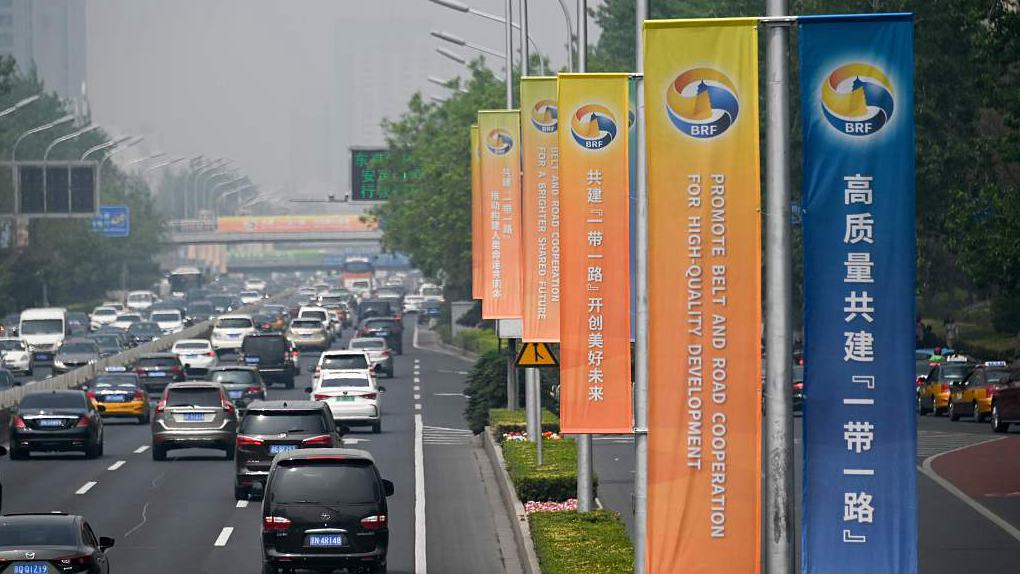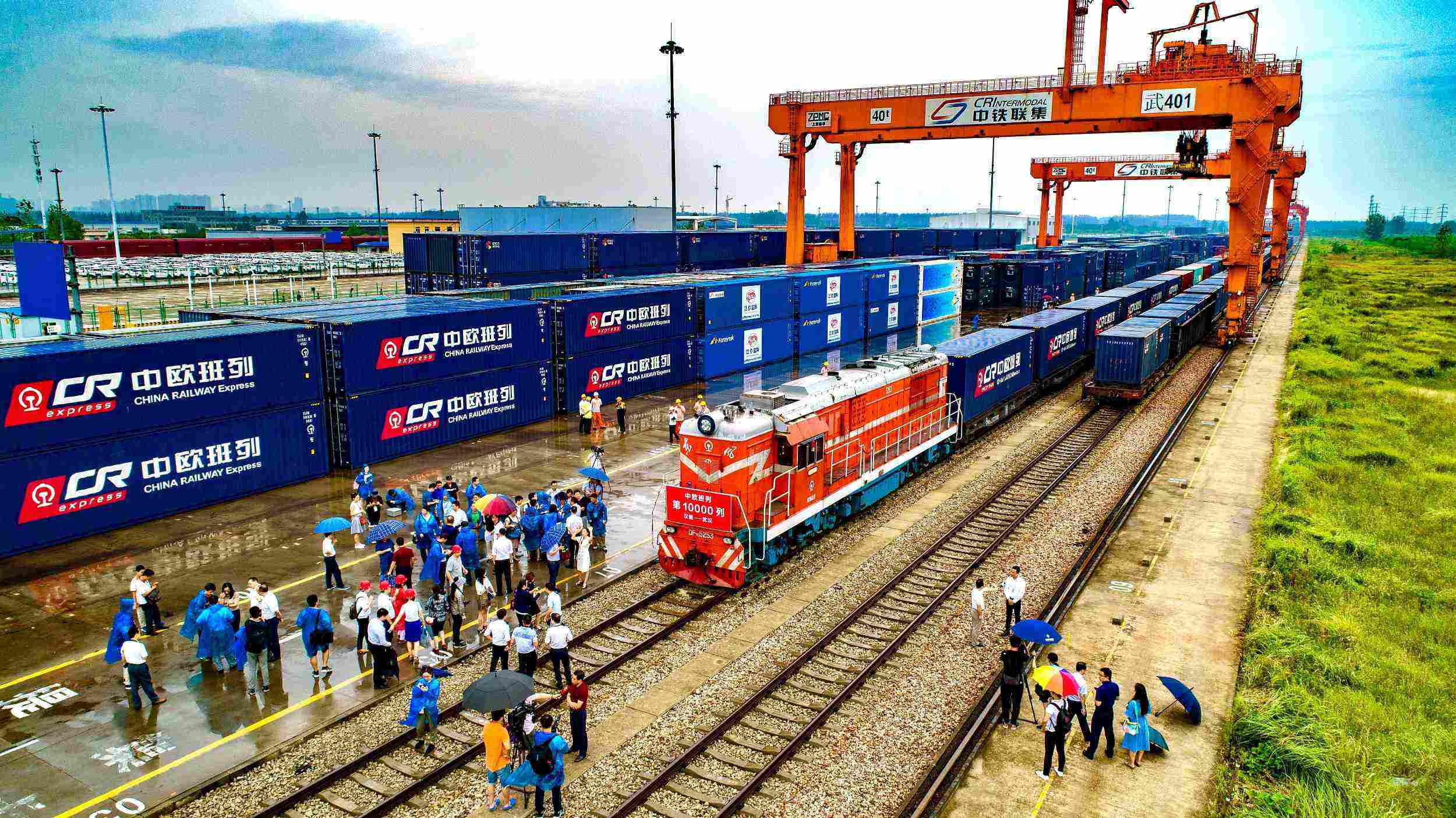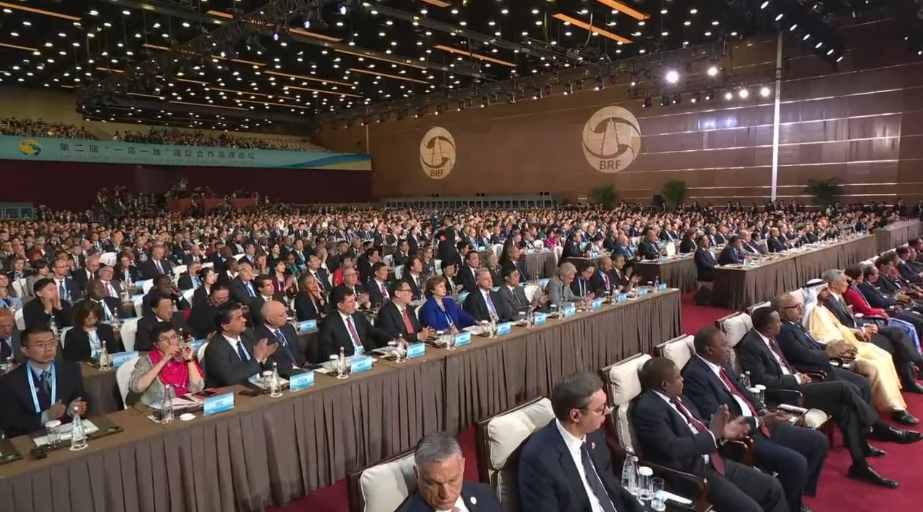
Opinion
08:26, 03-May-2019
BRI is far from a China-centric project
Xu Sicong

Editor's note: Xu Sicong is an opinion editor at CGTN. The article reflects the author's views, and not necessarily those of CGTN.
When Chinese President Xi Jinping first put forward the Belt and Road Initiative (BRI) back in 2013, few people knew what it really was. The media coverage on the initiative was relatively scant.
Now over five years later the situation is hugely different. With the recent closing of the second Belt and Road Forum for International Cooperation last month in Beijing, the BRI has become a catchword evoking the image of China's burgeoning power.
Initially, the initiative was primarily interpreted by the Western world as China's ambitious strategy to expand its geopolitical influence. China has thus been put under a microscope concerning its actions within the BRI, and more often than not, viewed in a negative light as it is accused of deploying strategies solely for its own good while putting other countries in jeopardy.
Now such rhetoric is still prevalent in Western media. However, opinions favorable to China have also emerged where observers outside the country have defended the initiative for the opportunities it brings about.

The China-Europe Railway Express. /VCG Photo
The China-Europe Railway Express. /VCG Photo
For example, for quite some time, the Chinese government has been depicted as maliciously exploiting resources of BRI countries, using debt diplomacy to undermine these countries' sovereignty, and adopting a no-strings-attached policy to sway political allegiance while all its partner countries are merely at the receiving end of this.
However, a recent article authored by Jacob Mardell in Foreign Policy argues it would be too naive to think all countries cooperating with China on projects under the BRI are simply fools cast under Beijing's spell.
The article further explains that the harsh criticisms towards the BRI coming from the Western world do not capture the mood on the ground. The initiative is, in fact, welcomed by a wide swath of local actors in those countries. Even though problems do emerge in the execution of individual projects, others such as the Sino-Serbian "friendship bridge" are praised for being "delivered on time, and at a reasonable price." BRI projects do serve the local economic needs, such as putting in place much-needed infrastructure and reducing travel times for local commuters.
Given the momentum the initiative has gained in the 126 countries with which China has signed cooperation documents, the fact that more objective analyses of the BRI now occasionally appear in Western media is hardly surprising. The popularity of the initiative among these countries has bolstered its international support and attests to the practicality of these countries' cooperation with China.
It is true that some of the criticisms against the practice of the initiative do not come out of thin air. However, in BRI's case, criticisms are frequently tinged with bitterness towards China's rise and assumption of the country's ill will. Some of the problems encountered during the implementation of the initiative are simply what happens with cooperation between any two states that do not have the same social customs, business practices, political conditions, so on and so forth.

The opening ceremony of the second Belt and Road Forum for International Cooperation (BRF) in Beijing, April 26, 2019. /CGTN Screenshot
The opening ceremony of the second Belt and Road Forum for International Cooperation (BRF) in Beijing, April 26, 2019. /CGTN Screenshot
Thus, assuming that the Chinese government deliberately deploys various strategies to jeopardize other countries' development is an idea too far-fetched. As a matter of fact, over the past five years, as China deepens its footprints across Asia, Africa, and Europe with the BRI, the country has taken notice of the various concerns expressed by relevant countries.
One example would be what was emphasized in President Xi's speech at this year's Belt and Road forum. Facing the doubts expressed over the sustainability of BRI projects, Xi stressed that the concept of sustainable development needs to be incorporated into the selection, implementation and the management of BRI projects. More specifically, he said that China had released a document that constitutes a framework for analyzing the sustainability of BRI debts, and the country will formulate "BRI green investment principles," compile a database for environmental protection regarding Belt and Road projects to realize the UN Sustainable Development Goals 2030.
Given China's intention to push for its flagship initiative globally, it is only understandable why the country has been taking action to accommodate concerns of its stakeholders, as ignoring its partners' interests would cause a backlash in those countries and for China, it would be equal to shooting itself in the foot.
With more and more countries on board now, China will not be the party that dictates where the cooperation is heading. For all parties' common interests, China will inevitably undergo a range of policy adjustments along the way to ensure the initiative delivers win-win results that are long-lasting and sustainable.
It is for the same reason that another recent article authored by Parag Khanna in the April 30 issue of Politico called for the U.S. to join the initiative. Not only for the commercial interests the BRI presents to U.S. businesses should the U.S. become a partner, but also for the possibility that the U.S., as another potential mammoth stakeholder, would be able to engage with China more closely diplomatically and diversify the paths the future cooperation may take.
(If you want to contribute and have specific expertise, please contact us at opinions@cgtn.com.)

SITEMAP
Copyright © 2018 CGTN. Beijing ICP prepared NO.16065310-3
Copyright © 2018 CGTN. Beijing ICP prepared NO.16065310-3